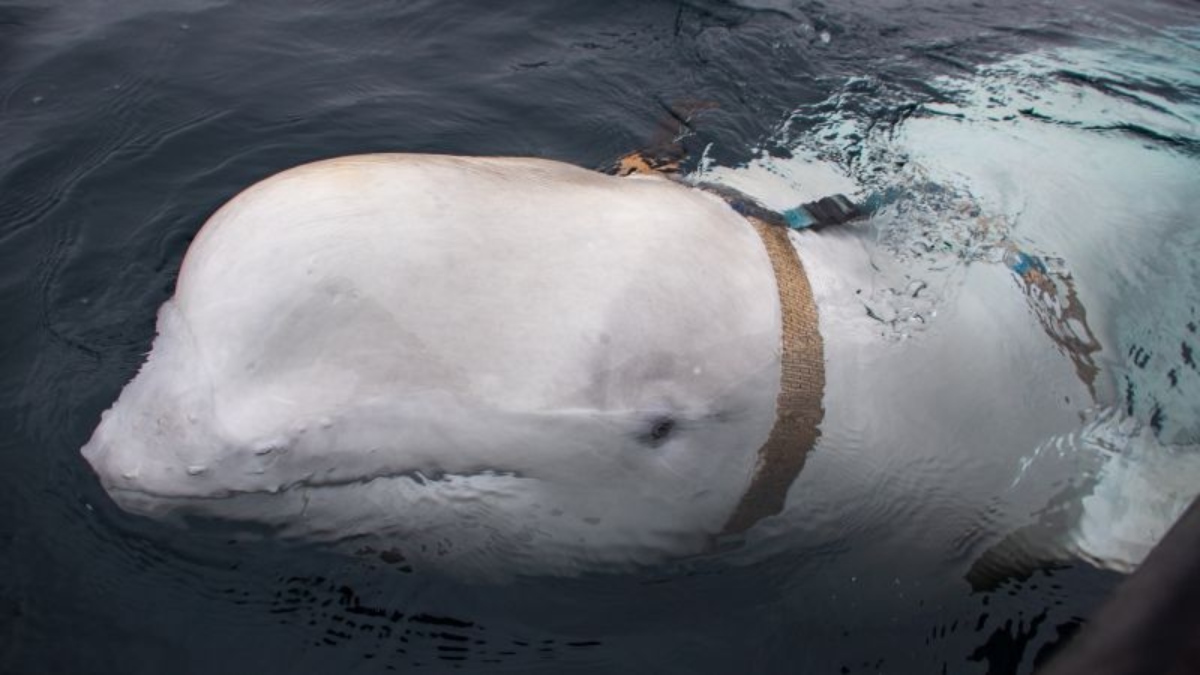Alleged Russian 'spy' whale now in Swedish waters 0:32
(CNN) -- A beluga whale speculated to be an alleged Russian "spy" has entered Swedish waters, according to OneWhale, an organization set up to protect the animal's health and welfare.
The whale, nicknamed Hvaldimir, gained international fame in 2019 after being spotted wearing a specially made harness with camera mounts, leading experts to believe the animal may have been trained by Russia's military.
"After four years of swimming south off the coast of Norway, Hvaldimir — known worldwide as the beluga "Russian spy" — is now in Swedish waters," OneWhale said in a statement Monday.
Hvaldimir was recently spotted in Oslo, Norway's capital, raising fears for the whale's safety given the heavy boat traffic in the area.
"But the famous beluga dodged the dangerous waters of Oslo in the direction of Sweden," OneWhale's statement read.
advertising
"We are impressed by Sweden's outpouring of affection towards Hvaldimir. They immediately contacted us upon arrival, and even closed a bridge to protect her."
OneWhale president Rich German further praised Sweden's reaction to the whale's arrival.
- Norway warns population to stay away from 'spy' whale for animal safety
"Hvaldimir's situation remains extremely vulnerable, as Sweden is a highly populated country, but we are very grateful that the Swedish authorities have taken swift action to care for the whale," he said.
Earlier this month, Norway's Directorate of Fisheries said Hvaldimir "has been travelling along the Norwegian coast" since 2019 with a few stops along the way.
The whale "tends to stay in hatcheries where it can catch fish, grazing on surplus feed," the agency added.
Hvaldimir is known for following ships and playing with those on board.
The whale's arrival in the "densely populated area" around Oslo means that "the risk that the whale could be injured due to human contact has become significantly higher," the management said at the time.
- Beluga "spy" whale is having a lot of fun in Norway
In 2019, experts told CNN that Hvaldimir was a trained animal, and tests suggested the whale had arrived from Russia.
Jorgen Ree Wiig, a marine biologist with Norway's Directorate of Fisheries, told CNN that the harness looked "specially made" and had "GoPro camera mounts on either side."
And the harness clips read "Equipment St. Petersburg," contributing to the theory that the whale came from Murmansk, Russia, and was trained by the Russian navy.
The navy is known to "train belugas to conduct military operations before," Wiig said, "such as guarding naval bases, assisting divers, finding lost equipment."
Beluga whaleSpy
